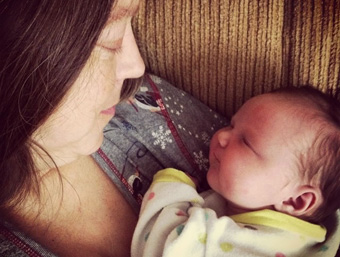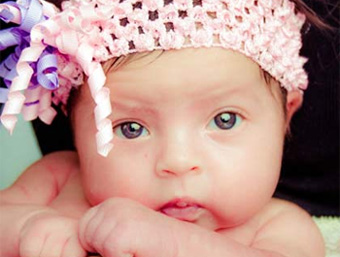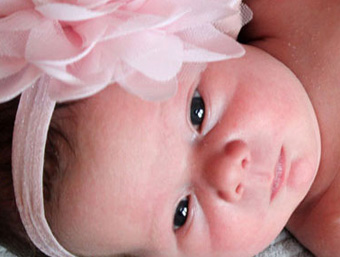 Many women come to A Personal Choice to have a reversal of their tubal ligation so they can naturally conceive. Many of our patients are over 40 years of age and often ask about the risk of pregnancy in older women.
Many women come to A Personal Choice to have a reversal of their tubal ligation so they can naturally conceive. Many of our patients are over 40 years of age and often ask about the risk of pregnancy in older women.
To better inform our patients, we have dedicate a blog series to the concerns of older women who are considering tubal ligation reversal.
The first article in the series of articles is: Tubal Ligation Reversal After Age 40 | Introduction.
About Tubal Reversal: What Is Advanced Maternal Age?
The American College of Obstetrics and Gynecology defines advanced maternal age as any woman who gives birth at or over the age of 35 .
The age of 35 has been chosen because the chance of problems in pregnancy after this age gradually begin to increase. Many experts believe the real risks of pregnancy do not begin to substantially appear until after the age of 40.
The risks of pregnancy in women of advanced maternal age can be better understood by dividing the risks into two categories:
Early pregnancy risks (less than 12 weeks)
Late pregnancy risks (after 13 weeks)
This article will focus on the early pregnancy risks and the next article will discuss late pregnancy risks.
Age And Tubal Reversal: Early Pregnancy Risks
Spontaneous abortion
Spontaneous abortion is the medical term for a pregnancy miscarriage. As one ages the risk of miscarriage gradually increases.
Estimated risk of miscarriage of any one pregnancy based on maternal age is:
Maternal Age Risk of Miscarriage
<30 12%
30-34 15%
35-40 25%
40-44 51%
>45 93%
Miscarriage can occur with any pregnancy and in women of any age. As women age, their eggs age as well. Older eggs can have more trouble copying, dividing and passing on DNA genes (chromosomes). When the chromosomes are not duplicated or transferred normally then early pregnancies will stop growing and be miscarried by the woman’s body.
A previous article discusses in detail the genetic reasons behind pregnancy miscarriage: Pregnancy And Tubal Reversal: Challenges Increase With Age.
Chromosomal Abnormalities
The risk of chromosomal abnormalities in a pregnancy increases as a woman ages. This closely relates to the risk of miscarriage. The human cell has 23 chromosomes- 2 copies of each for a total number of 46 chromosomes. If there is any error in the duplication, division, and passing on the duplicated genes then this results in a chromosomal abnormality.
 The most common chromosomal abnormalities are trisomy 21, 13, and 15 (trisomy means 3 sets of genes instead of the normal number of 2 sets). Trisomy 21(Downs Syndrome) is a well recognized example. Some trisomy 21 pregnancies will progress to term and be born alive. Most trisomy 21 pregnancies will end before the first trimester. Most trisomies will miscarry before becoming a full term pregnancy.
The most common chromosomal abnormalities are trisomy 21, 13, and 15 (trisomy means 3 sets of genes instead of the normal number of 2 sets). Trisomy 21(Downs Syndrome) is a well recognized example. Some trisomy 21 pregnancies will progress to term and be born alive. Most trisomy 21 pregnancies will end before the first trimester. Most trisomies will miscarry before becoming a full term pregnancy.
Chromosomal abnormalities can be diagnosed in late first trimester or early second trimester with genetic testing. A previous article in this series discusses in detail the most common genetic trisomies observed in pregnancy: Tubal Reversal Pregnancies: Age And Genetic Abnormalities.
Congenital Malformations
Congenital malformations is the medical term for birth defects. A birth defect can result from chromosomal abnormalities or impaired cell growth during early development.
 Examples of congenital malformation include heart problems seen in infants born with Downs Syndrome or cleft lip problems in babies who are genetically normal. Heart defects, club foot, and diaphragmatic hernias are congenital malformations which increase with maternal age.
Examples of congenital malformation include heart problems seen in infants born with Downs Syndrome or cleft lip problems in babies who are genetically normal. Heart defects, club foot, and diaphragmatic hernias are congenital malformations which increase with maternal age.
The chance of having a pregnancy with congenital malformations can be decreased by taking folic acid before and after conception, stopping cigarette smoking and alcohol consumption, and having medical illness under good control before the start of pregnancy. Congenital malformations can often be diagnosed with a combination of first trimester and second trimester targeted ultrasounds.
A previous article in this series reviews the tests available to pregnant women to detect and diagnosis genetic abnormalities and birth defects: Pregnancy After Tubal Reversal: Review of Genetic Testing.
The second part of this article is After Tubal Reversal: Risks In Late Pregnancy. This article reviews the increased risks in second trimester of pregnancy experienced by women of older age.
Submitted by Dr. Charles Monteith
More Information On Tubal Reversal Surgery…
 Readers are invited to visit our website A Personal Choice for more information on tubal surgery, visit our Tubal Reversal Blog for information and personal stories about pregnancy, and join daily patient discussions on our Tubal Reversal Message Board.
Readers are invited to visit our website A Personal Choice for more information on tubal surgery, visit our Tubal Reversal Blog for information and personal stories about pregnancy, and join daily patient discussions on our Tubal Reversal Message Board.
Advice On Tubal Reversal Surgery
Readers who want personal advice on tubal reversal surgery can call (919) 968-4656 for a free nurse consultation.









